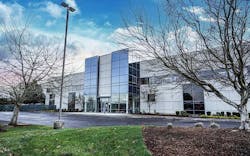Data Center, Cloud, AND Colocation, Not Data Center vs. Cloud vs. Colocation
Enterprises are building the most effective ecosystem for their needs by mixing and matching data center, cloud, and colocation solutions. This launches our special report series on the Hybrid Cloud.
Get the full report
Everyone has been in love with the cloud over the past decade, but the relevance of colocation and on-premises data centers has only increased and strengthened for enterprises over time. Enterprises are building their most effective IT ecosystem in a “best of breed” fashion, leveraging the strengths of each type as needed. It’s not a matter of choosing or favoring one over the others but selecting the most appropriate tool for the application, workload, and desired outcomes.
Individually, public cloud and traditional data center have been evolving for years with the complexity in enterprise IT infrastructure increasing to utilize the best features of cloud services as they gained maturity from “sandbox” development platforms to scalable resources. Data centers have changed from a simple, centralized resource to incorporate public and hybrid cloud models, expanding into high-performance colocation facilities with bespoke solutions to balance and supplement in-house assets.
It’s not a matter of choosing or favoring one over the others but selecting the most appropriate tool for the application, workload, and desired outcomes.
Enterprises today are mixing and matching data center, cloud, and colocation to balance their needs for stable production, rapid prototyping and development, security, and growing requirements for hyperscaling and customized high-performance compute to meet increasing workload requirements.
Many workloads are best in the cloud, with ease of use and scalable the most outstanding benefits, especially when there are workloads that grow and ebb on a predictable basis. For example, Amazon, Etsy, and many other e-commerce sites have increased traffic between mid-November through the end of the year due to the holiday shopping season while Amazon Prime Video, Apple, HBO Max, and Netflix will see traffic surges when they release the latest movies and TV shows.
However, public cloud cannot provide the economics or high-speed performance needed by demanding workloads such as artificial intelligence/machine learning, cryptocurrency, edge computing, finance, and real-time data analytics. Colocation has become the essential solution for applications requiring HPC/ compute-dense resources, low-latency response times and using massive amounts of storage— usually all three. Enterprises use colocation facilities to build customized, hyperscale resources that are precisely tuned for effectively running demanding workloads.
Colocation has become the essential solution for applications requiring HPC/ compute-dense resources, low-latency response times and using massive amounts of storage— usually all three.
Colocation also offers additional security and regulatory benefits over cloud and data center options. As countries and regions pass and refine data privacy and compliance measures, physically housing data in the country of origin becomes increasingly necessary.
Download the full report Hybrid Cloud, courtesy of NTT to learn more about how workloads are continuing to shift between data center, cloud, and colocation. In our next article, we’ll look at cloud repatriation and edge computing.
About the Author



